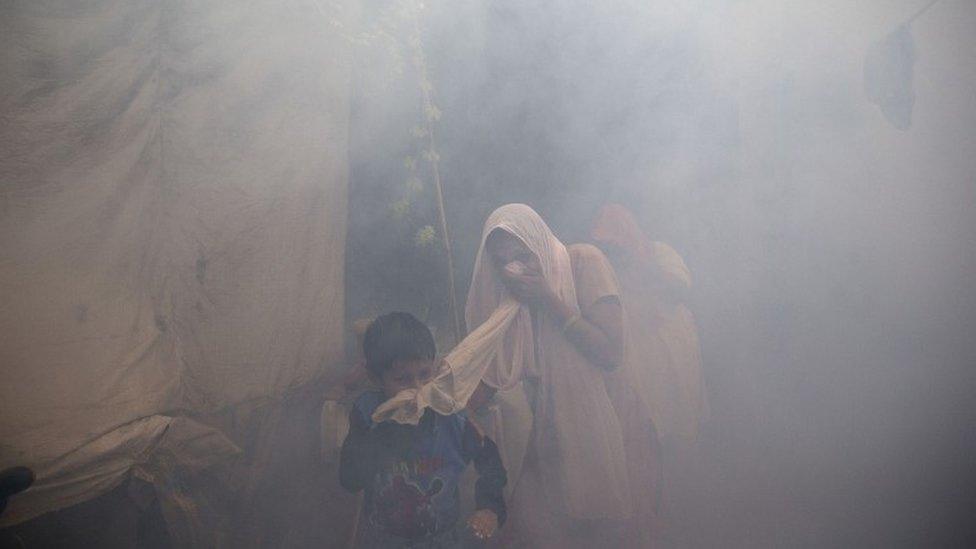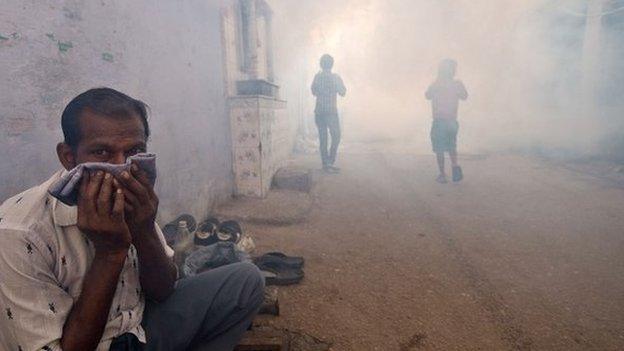Delhi battles dengue fever surge
- Published

Dengue cases usually jump during and just after the rainy season
The Indian capital, Delhi, is in the grip of the worst outbreak of dengue fever in five years, officials say.
More than 1,800 cases have been recorded in recent weeks, compared to 1,695 cases for all of 2010. Five deaths have been reported so far.
The mosquito that carries the dengue virus breeds in containers with clear, stagnant water.
Dengue cases usually jump during and just after the rainy season, which normally lasts from June to September.
Hospitals and clinics across the city have been inundated with patients, putting a strain on emergency services.
News channels are showing patients sharing beds and scores of people queuing up at clinics for free fever tests.
The government in Delhi has ordered 1,000 extra bed in hospitals to treat dengue patients after the suicide of a couple whose seven-year-old son died from the tropical illness , externalafter being allegedly refused treatment at a number of city hospitals.
Delhi Health Minister Satyendar Jain has also ordered the setting up of "fever clinics" at hospitals to deal with the rush of patients.
"There is no need to panic. I have ordered all government hospitals that they should not refuse to admit dengue patients even if they have to treat two patients on a single bed," he said.
"The panic in people about the spread of dengue is leading to a huge burden on hospitals."
YK Mann, director of the Municipal Corporation of Delhi, told the AFP news agency that this was "the worst outbreak in the last five years and it is going to further increase as the weather remains humid".
The government's latest move comes after a couple jumped to their death from a four-storey building in Delhi last week, two days after their son died of the fever.
The authorities ordered a magisterial inquiry into the death after local media reported that the boy was refused admission at five private hospitals. The reports sparked outrage and anger in the city.
Monsoon rains provide more breeding grounds for disease-carrying mosquitoes, who lay their eggs in stagnant water, including pots of clean water, puddles and open sewage drains.

Dengue fever
Dengue fever is prevalent in sub-tropical and tropical regions, including South East Asia and South America
It is a major cause of illness worldwide, causing about 100 million episodes of feverish illness a year
Symptoms include high fever, aching joints and vomiting
Complications can prove fatal in extreme cases
There are four major strains of the virus

- Published14 October 2013
